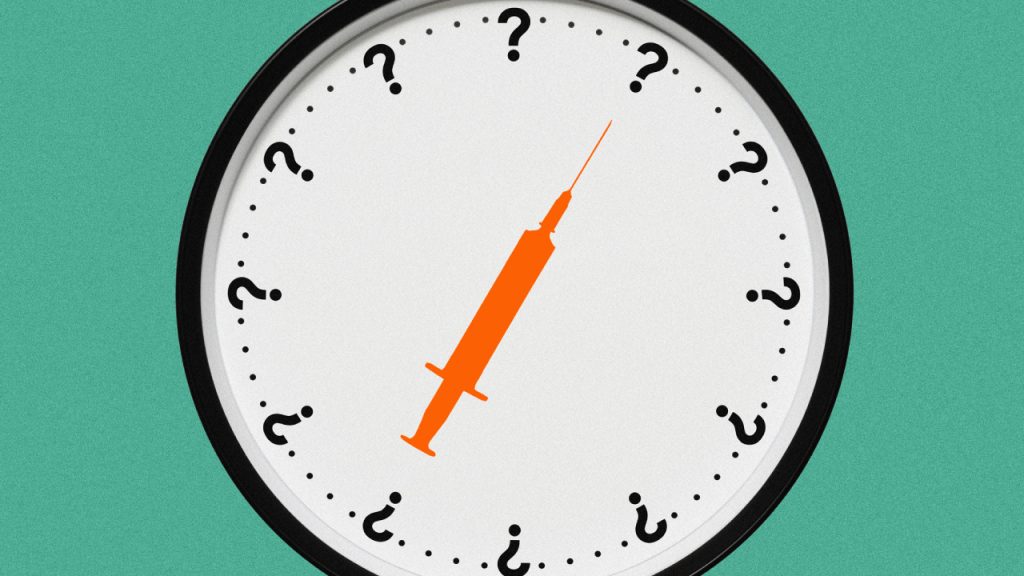-
×
 NY Times Access and The Economist Digital 2 Years
1 × $199.00
NY Times Access and The Economist Digital 2 Years
1 × $199.00
Health
Should I Get the New Covid 19 Booster Shot Now or Wait?
There is a new Covid 19 booster just in time for fall. Timing your next shot right could help maximize your protection.
U.S. health regulators authorized the additional shots from Pfizer Inc. and Moderna Inc. last month. Now the boosters are available at health centers and pharmacies across the country. The new shots are bivalent, retooled to target both the original strain of virus as well as the now-dominant Omicron subvariants, BA.4 and BA.5.
Centers for Disease Control and Prevention Director Rochelle Walensky said in an announcement that there is no bad time to get the booster as long as you have received at least a primary series of the vaccine, don’t actively have Covid 19 and have waited at least two months since your last shot.
Subscribe today and get 52 weeks of The WSJ Print Edition for $318
For healthy people not at high risk of severe disease, there might be reasons to wait longer, doctors say, but the determination depends on your risk tolerance. Older or immunocompromised people should get the booster as soon as they are eligible or about a month after recovering from a recent infection to minimize the possibility of severe disease, according to doctors.
Here is how doctors advise gaining the most benefit from the shot.
What if I recently had another Covid-19 shot?
Waiting at least two months after your last Covid-19 vaccination will help strengthen your immune response, doctors say.
When you got your first dose of the vaccine or contracted Covid-19, your body created an immune response by activating B cells, which produce antibodies that act as a chief line of defense against the virus.
These B cells retain a “memory” of the virus to fight off future infections. Getting a booster reactivates the B cells to produce more antibodies that can fight the virus. You can extend your protection by waiting to boost your antibody production after it starts to decrease rather than boosting it when antibody levels are already high, doctors say.
How long should I wait after having Covid?
You can get the shot any time after you have recovered from a bout of Covid-19. Some doctors advise waiting at least a month after recovering to get your new booster, and perhaps up to about three months if you are healthy and not at high risk of severe disease.
Scientists don’t know exactly how long antibodies from an infection can protect you from reinfection. Earlier in the pandemic, the standard medical guidance was that you were protected for at least about 90 days. That window has shrunk as new variants and subvariants have emerged that can better evade immune protections produced by earlier versions of the virus.
People who are immunocompromised or above the age of 50 should avoid waiting much more than a month after recovering to get their boosters, says Dr. Jason Bowling, director of hospital epidemiology at University Health in San Antonio, because they are at higher risk of severe disease.
People who are healthy and don’t work in places that are potentially higher-transmission settings such as healthcare facilities can consider waiting up to three months from their prior infections, doctors say. Getting the vaccine too soon could diminish the potential benefit, says Dr. Scott Roberts, an infectious-diseases specialist at Yale School of Medicine.
Get Barron’s Digital Subscription Unlimited Access 5 Years for $69
“The challenge is balancing that with the risk of getting Covid once your immunity has waned sufficiently,” he says.
The new shot is likely to continue protecting against severe disease and death from Covid-19 as previous versions have, according to doctors. It hasn’t been determined whether or how much the new booster can help prevent transmission and infection.
The Pfizer bivalent vaccine is authorized for use in people 12 years and older, while the Moderna bivalent vaccine is authorized for those 18 years and older.
Should I try to time my booster for the next surge or variant?
Doctors expect cases to rise as the weather cools and more people gather indoors. Another variant is likely to crop up, they say, though it is anyone’s guess when.
Trying to time your shot is a gamble. Waiting until cases rise again could increase your risks with reinfection or complications, doctors warn, and the next surge or variant could happen at any time. Yet waiting could also put you closer to the next surge, giving you boosted antibodies and protection at the right time.
People who wait also run the risk of having to pay out of pocket for the shot, as the federal government prepares to shift payments for Covid-19 drugs and vaccines to the commercial market as early as January.
Can I get the booster at the same time as the flu shot?
Yes. You don’t need to plan two separate trips, according to doctors and CDC guidance.
You might feel a little more achy than normal if you get both at one time, says Dr. Abinash Virk, an infectious-disease specialist at Mayo Clinic, but it is otherwise safe.
Doctors say they worry that the recent bad flu season in Australia might portend a rocky one in the U.S. as the weather starts to cool. Flu shots are already available at places such as pharmacies and health centers.









